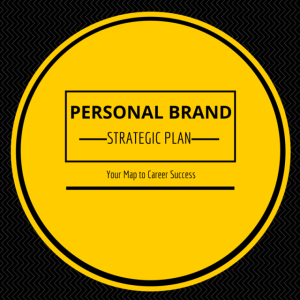Whether you realize it or not, you hold the position of managing the world’s most important brand: You. That statement is not meant in a self-centered way, but it is a reminder that you are ultimately the most influential person in shaping your destiny. Many definitions can be found for personal branding. Many of the definitions espoused are incomplete or inaccurately frame the scope of personal branding. I cringe every time I read an article that suggests personal branding consists of a professional photo, up-to-date LinkedIn profile, and active social media presence. Building a great brand for a product or service requires more than communication elements. Similarly, a personal brand is more than communication elements, too. My favorite definition of personal branding is that it is a process for identifying, developing, and communicating your unique value.
Great brands don’t just happen, and you will not develop a distinctive personal brand just by showing up to work everyday. Developing a personal brand strategy is not a question of if you should do it but how you will do it. In other words, personal branding is a default strategy for professional growth… you must commit to a plan for managing what are the 3Ms of a personal brand: Meaning, Makeup, and Message. Specifically, there are three forces that make personal branding a default strategy: Competition, differentiation, and indifference.
You Have Competition
Unless you go to work in the family business or venture out as an entrepreneur, you will be marketing yourself to be hired by someone. And, you will have plenty of other people around you doing the same thing. According to the National Center for Education Statistics, more than 1.8 million undergraduate degrees and 750,000 graduate degrees were awarded by colleges and universities in the United States in 2012-2013. And that is just the number of newly minted graduates entering the professional workforce. Another layer of competition will be those people who are already in your industry of choice as well as graduates who are still looking to land a job in their field of study.
You will have competition even if you are your own boss. Consultants, freelancers, and other contract-based workers must position themselves to compete against others with similar expertise. If you have aspirations of working as a social media professional, you are not alone. A review of Twitter profiles to find social media professionals yielded more than 181,000 mentions such as “experts,” “evangelists,” “gurus,” “consultants,” and other positioning descriptors. That’s a lot of smart people! Personal branding can empower you to craft a distinctive identity that can rise above the noise of thousands of other self-proclaimed “ninjas” and “masters” in your profession.
You Need to Stand Out
Once you have a grasp on the extent of competition you will face to land a job in your field or with a particular company, it is evident that you could easily become lost in a sea of applicants and résumés. For example, sports marketing is a field that attracts many college students as well as people in the workforce looking to make a career change. The appeal of the industry attracts many applicants. It is not uncommon for a professional team to receive hundreds of applications for a single entry level ticket sales job or marketing internship.
The quantity of competition may not be as great in other industries, but even if there are fewer applicants vying for the same positions as you it is likely that competition will be intense. So, whether you are up against three or 103 “competitors” for a job, your challenge is to stand out from the pack.You are aiming to develop a distinctive difference that is valued by other people, not possessing something different merely for the sake of being different. Personal branding is a means of developing your value proposition, which can be defined as the most compelling benefits that attract people to take the desired action.
Most People Don’t Think This Way
Yes, you have competition. Luckily for you, most of them will not act like serious threats to your personal brand. Why? Most people do not apply branding principles to their own situation and do a mediocre job of marketing their professional identity. If you choose to apply strategic thinking to career planning, job search, personal branding, and career management, you will have gained an advantage over others who are more task oriented (e.g., “I have to create a résumé,” or “I must apply for five jobs today”). Although there are no definitive statistics on the application of strategic planning principles to personal development, it is widely believed that only a small percentage of people formally establish goals. Estimates on the percentage of goal setters in the population vary, ranging from three percent to 20 percent. The exact percentage is unimportant; the point is that most people do not have a strategy for positioning and developing their personal brand.
The Default Setting
For the sake of your future, do not look at personal branding as something that other people do. Also, do not assume it is not necessary in your field. Yes, personal branding takes on even greater importance in situations in which an individual is the brand such as an author, artist, or entrepreneur, but there are many other professions in which building a brand with a focus on the value you can offer to others can be a growth plan for advancement.
Evaluate the standing of your personal brand today by asking these questions:
- Do I see myself as a brand? If no, what are the limiting thoughts or beliefs that prevent me from adopting a personal brand mindset?
- Which of the external forces- competition, differentiation, or indifference- gives the most compelling reason to develop a personal brand strategy to position my brand for growth?
Remember, personal branding is not a matter of if it should be done but how you should do it. Relish the challenge of managing the world’s most important brand.

